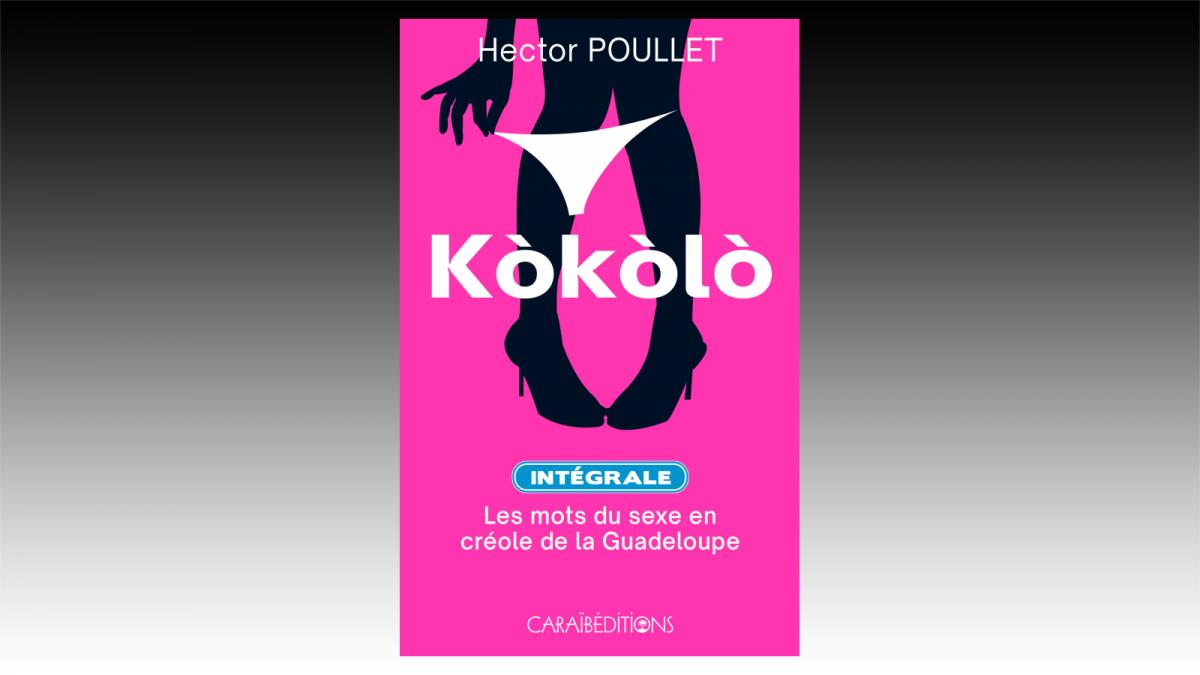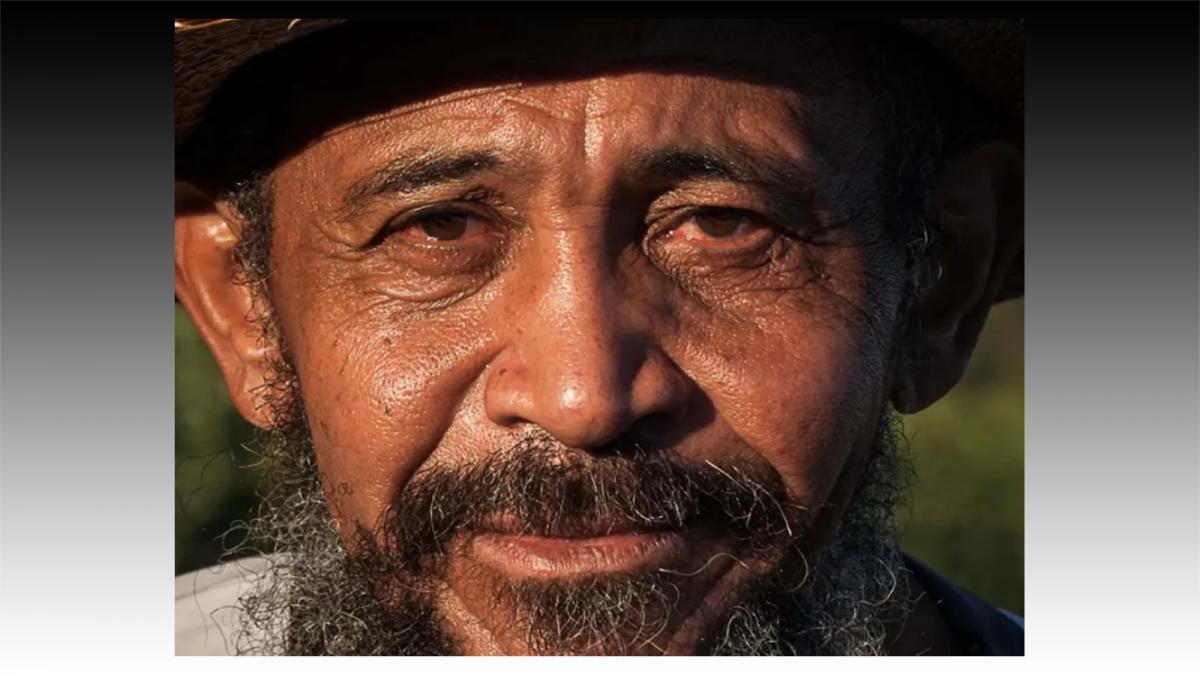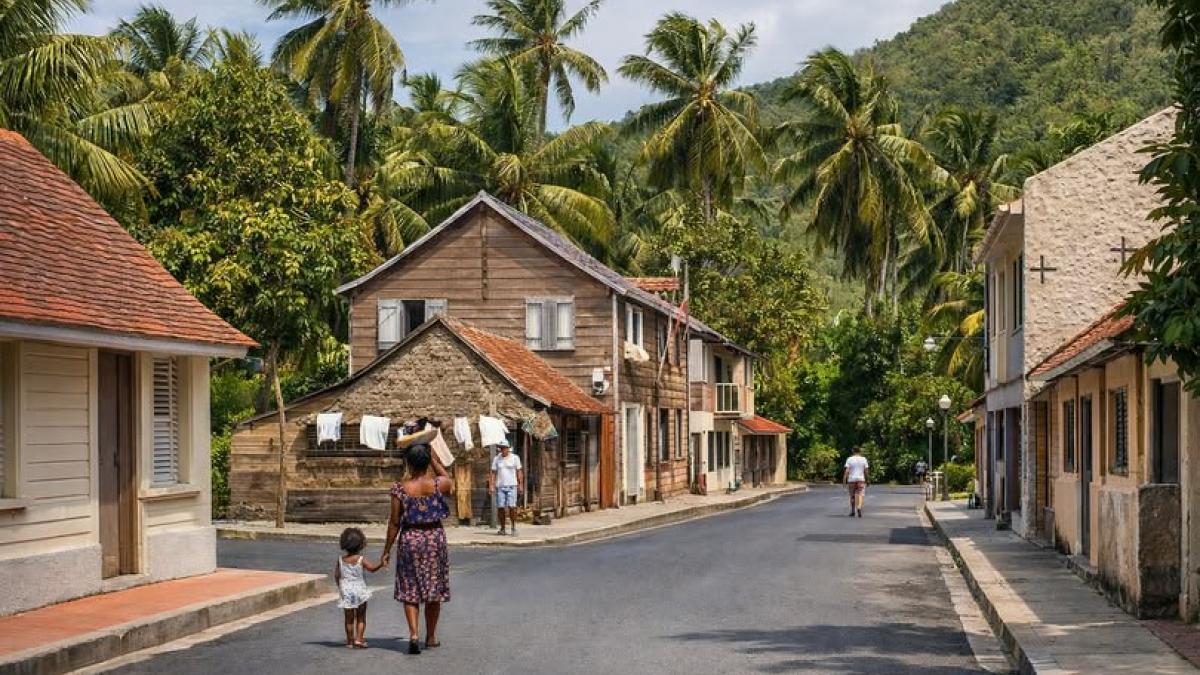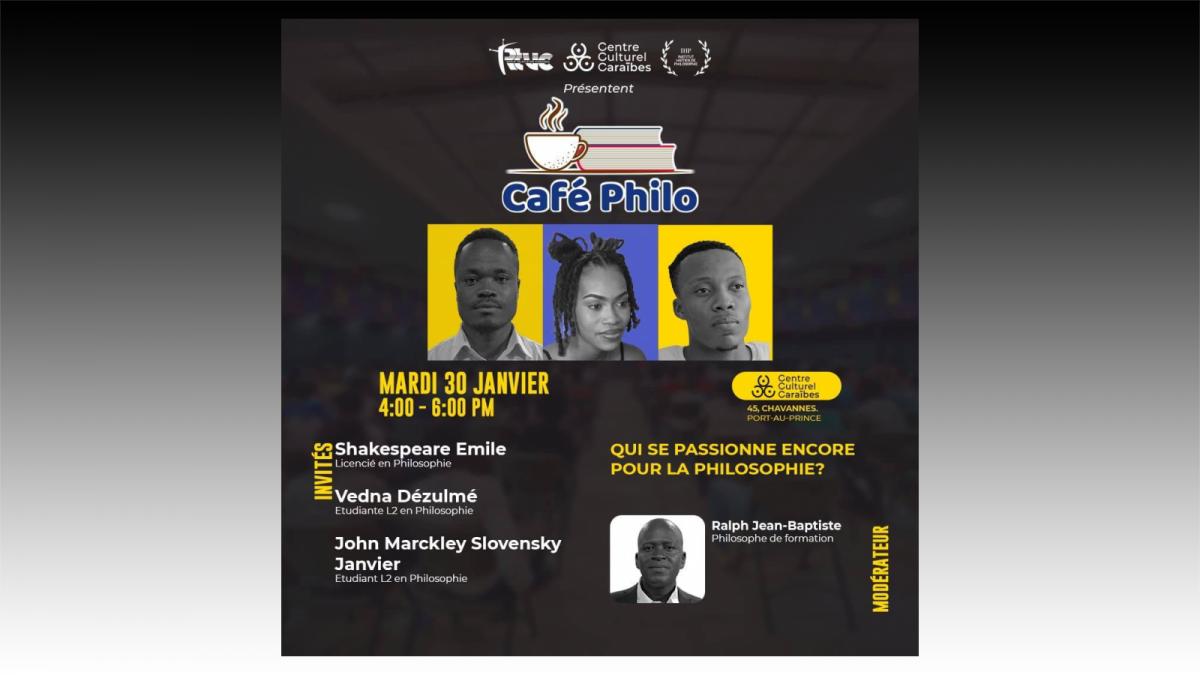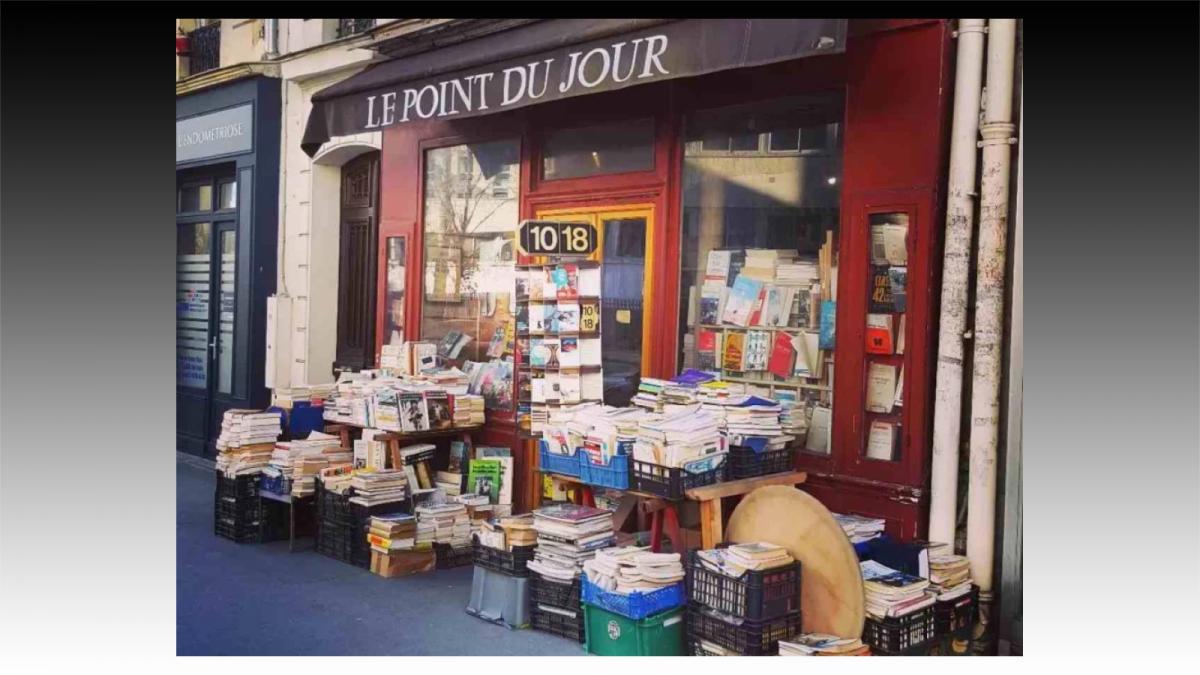Why Cornwall is resurrecting its indigenous language

As Britain redefines its modern identity, the Cornish are re-finding their place in the nation through their ancient language, Kernewek.
"Here lived Dolly Pentreath, one of the last speakers of the Cornish language, as her native tongue died December 1777." So says a faded granite plaque on an old stone wall in Mousehole, a fishing village in south-western Cornwall that heaved with holidaymakers on a hot summer's afternoon. I stopped to take in this momentous linguistic monument, then turned against the crowd and walked uphill along a sunken lane until a half mile later I stumbled into a graveyard.
Here, in the neighbouring village of Paul, a faded headstone commissioned in 1860 by Napoleon's nephew, the linguist Prince Louis Lucien Bonaparte, marks Pentreath's grave. A humble "fishwife" from Mousehole, Pentreath spoke Kernewek (or Cornish), a Celtic language older than English that all but disappeared after her death.
Cornwall's history, culture and language stretches back to the end of the Roman Empire in Britain. Although modern Cornwall is one of the United Kingdom's most beloved tourist spots, the region struggles with unemployment, a housing crisis and more, firing up calls for more independence from distant London amongst nationalist groups who are proud of their distinct heritage. A scholarly revival in the 20th Century brought Cornwall's indigenous language back from the dead, and now, as the number of speakers increases, Kernewekis helping Cornwall to cement its Celtic identity in modern Britain.
"Dalghus yw Kernewek avel tra yn gwirvos [Cornish is inclusive as a phenomenon]," said Will Coleman, the founder of Go Cornish, an educational project providing Cornish language teaching programmes to primary schools. "Dell vynnav, pub huni a drig omma yn Kernow dhe omglew bos an yeth rann poosek a'ga honanieth gonisogethek [And I want anyone who lives here in Cornwall to feel that the language is an important part of their cultural identity]."
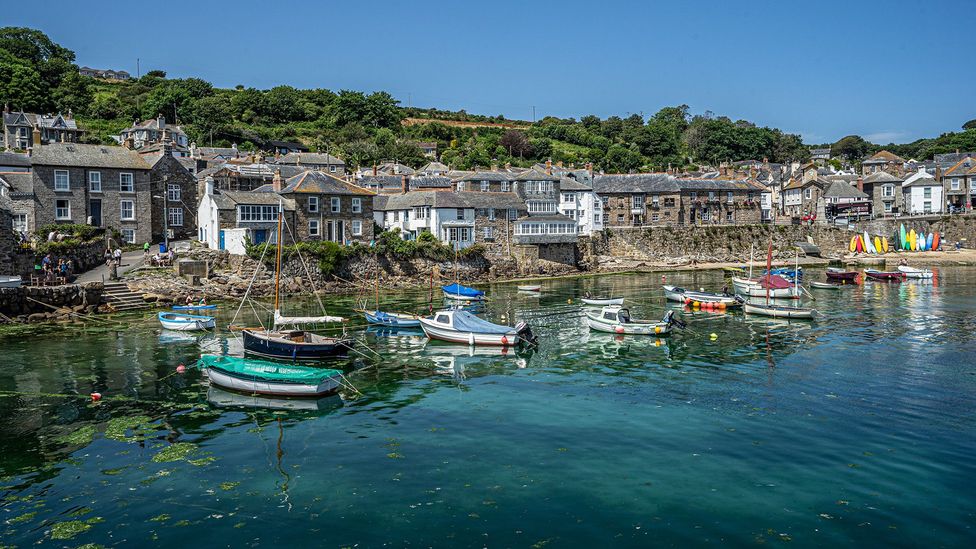
Dolly Pentreath, one of the last speakers of the Cornish language, lived in the fishing village of Mousehole (Credit: Richard Collett)
The origins of Kernewekare found in Common Brythonic, a Celtic language spoken by native Britons that diverged into Welsh, Breton (still spoken in Brittany, France) and Cumbric (spoken mainly in northern England and southern Scotland until about the 12th Century) when Anglo-Saxon invaders pushed British kingdoms westwards – and even across the English Channel to Brittany – from the 5th Century CE onwards. In Britain's south-west, the isolated Cornish peninsula became a natural refuge for the language, and as many as 38,000 people (out of a total population of around 50,000) spoke Kernewekat its peak in the Middle Ages.
The number of speakers fell dramatically, though, when the Tudors imposed English in Cornish-speaking churches after the bloody 1549 Prayer Book Rebellion (a mass uprising against the English monarchy that left thousands across the south-west dead), and, by 1777, just a handful of Cornish speakers remained in far western holdouts. Pentreath's death came to represent the death of the language itself – until a Cornish scholar named Henry Jenner published A Handbook of the Cornish Language in 1904, which kickstarted a Celtic revival in Cornwall.
I only knew there was a Cornish language when I was growing up because we had this tea towel with these strange words that I didn't understand on it
Kernewek, though, remained in the domain of academics and eccentrics for decades. "I only knew there was a Cornish language when I was growing up because we had this tea towel with these strange words that I didn't understand on it," said Coleman, who started Go Cornish – which now helps around 10,000 students learn Kernewek in 50 primary schools – as a response to the invisibility of his homeland's native language. "But the tea towel taught me basic words; like bara for bread, or chi for house. Then at secondary school, I could do a half-hour Cornish language club a week. But that was it."
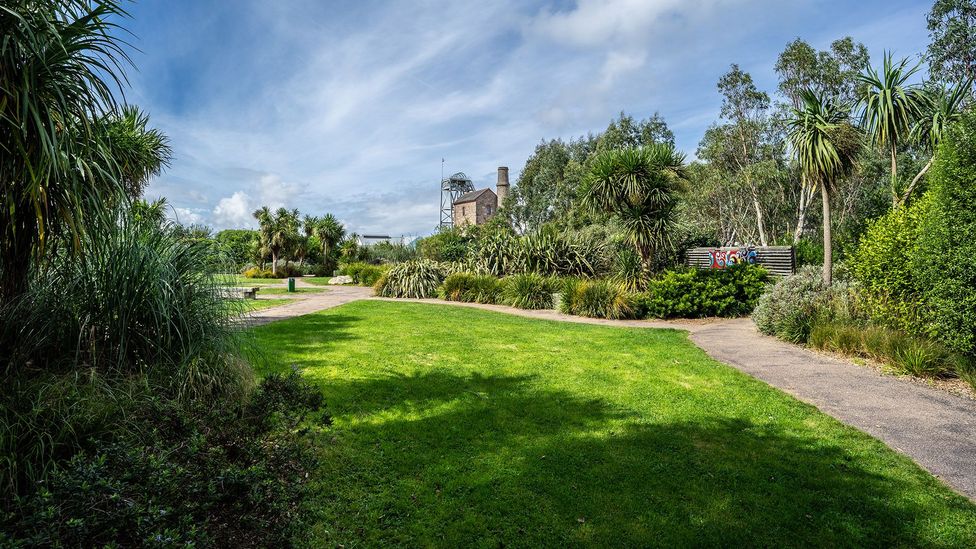
The Heartlands Diaspora Gardens tell the story of Cornish migration and their influence on the countries they went to (Credit: Richard Collett)
"Dydh da," I heard as I walked into Kowsva, a Cornish-language bookshop located in the former mining town of Camborne, a 40-minute drive east of Mousehole. Copies of the Tin Tin comics translated into Cornish caught my attention, while stacks of English-Cornish dictionaries and medieval plays like the Ordinalia – an epic 14th-Century mystery written in Middle Cornish – filled the shelves.
I'd been greeted in Cornish on my way in and given a "meur ras" (thank you) and "duw genes" (goodbye) by the volunteers on my way out of the bookshop. Kowsva is one of the projects overseen by Kowethas an Yeth Kernewek (The Cornish Language Fellowship), a charity that also organises events like the Pennseythen Gernewek, a three-day "Cornish Language Weekend" that claims to be the largest annual gathering of Cornish speakers in the world.
Kowsva(which roughly translates as "talking place") is part of the wider "Heartlands" project, a repurposed mine site outside Camborne that's home to a mining museum and a "Diaspora Garden" exploring Cornish links across the world. Meanwhile, a formerly derelict brewery in the nearby town of Redruth is home to Kresen Kernow, a cultural centre housing the Cornish archives, which can be visited by anyone interested in the Cornish language and heritage. Both institutions are feeding the cultural demand of a Cornish "nation" that's hoping to flourish once more.
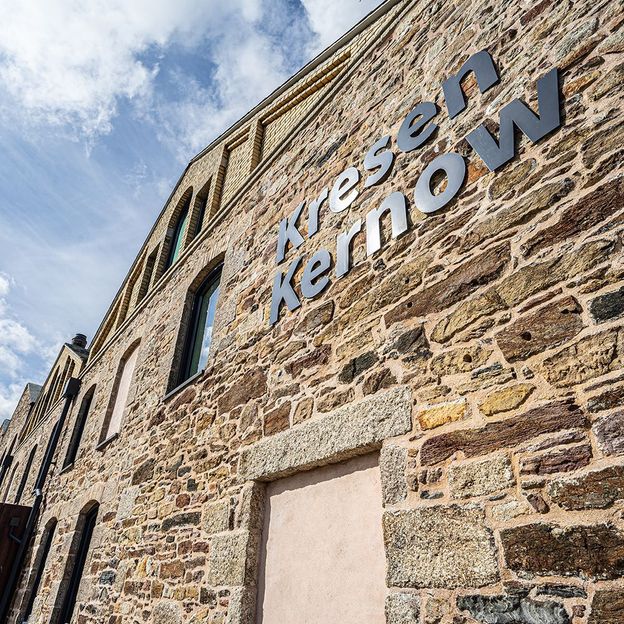
Kresen Kernow in Redruth is a cultural centre housing the Cornish archives (Credit: Richard Collett)
"In the five years that I've worked at the Cornish Language Fellowship, we've seen a massive shift towards people learning and speaking Cornish," said Emma Jenkin, the coordinator for Kowethas an Yeth Kernewek. "I was in the pub in Truro just last night, where our language group meets a few times a month to speak only in Cornish."
In 2010, Unesco reclassified Cornish from "extinct" to "critically endangered", as the language spread from academia into mainstream education and use. According to the Cornish Language Office, a local governmental organisation that aims to increase the use of Cornish as a community language, an estimated 400 speakers are at an advanced level and 2,000 are conversational, while many thousands more have some knowledge of the language. During the Covid-19 lockdown, Jenkin saw a surge in signups for the online Cornish language lessons offered by Kowethas an Yeth Kernewek, and now they have more demand than there are teachers.
The revival of the language is in full swing, but it's not been smooth sailing. Coleman explained how Cornish has been plagued by what he called the "spelling wars", a schism between different groups that promoted different versions and spellings of the language. Even the word Kernewekhas several different spellings, while the idea of a "Cornish revival" is even contentious.
"It was never extinct," said Kensa Broadhurst, a Cornish language teacher and researcher at the University of Exeter's Institute of Cornish Studies. "It was always critically endangered, but it was never extinct."
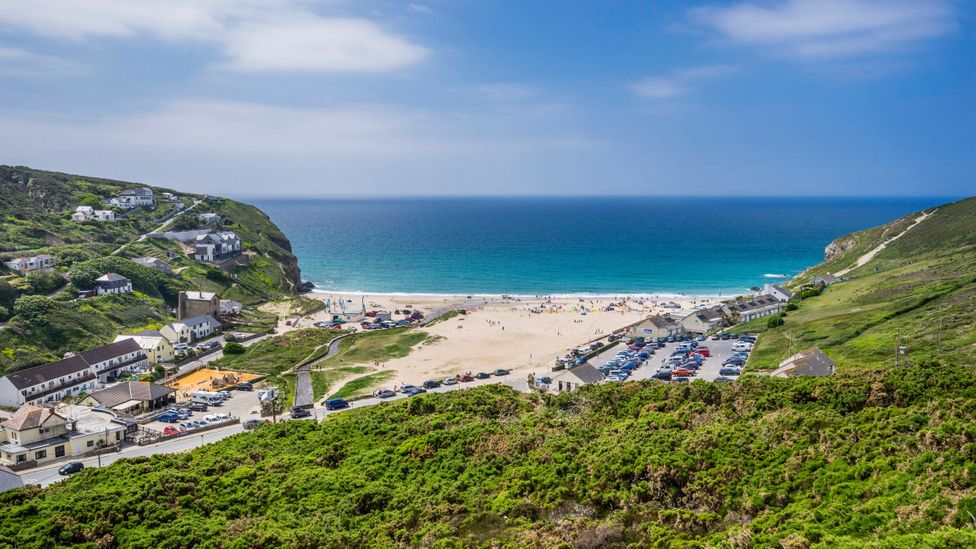
Kernewek still lives on in place names, such as the village of Porthtowan; "Porth" means bay or harbour (Credit: Manfred Gottschalk)
Was Dolly Pentreath, the fishwife whose story I'd searched out in Mousehole, really the last Cornish speaker? "No," said Broadhurst. "There were others after her that spoke Cornish, families that you can trace the link down through the 19th Century."
The language also survived in common use in Cornish names, place names and the numbers used by fishermen in places like Penzance and Mousehole, while academics continued to write papers and publish dictionaries that demonstrated an active use of the language after Pentreath's death. Jenner's A Handbook of the Cornish Language, published in 1904, is widely taken as the moment when the Cornish language was brought back from the dead, but according to Broadhurst, the extinction myth was emphasised to increase the allure of the "revival".
The distinction shows that Cornish is not simply a dead language made up again by 20th-Century academics, but a language that has a continual link to Cornwall's past. Broadhurst believes this not only helps push Cornwall's unique identity as what she called the "fifth nation of the United Kingdom" but could provide the credibility the language needs to be taught in secondary schools, rather than just nurseries and primary schools as it currently is.
When I was growing up, my mother always told me that we weren't English. We were Cornish. So, we always had a feeling that something was missing
For many, the language is a link to a lost Cornish heritage that was heavily Anglicised over the centuries. It's a heritage that's often difficult to describe in English terms. "It was always in me," said Esther Johns, a Cornish teacher who runs the Cornish language cookery show Kegin Esther (Cooking With Esther) on the An Mis television programme. "When I was growing up, my mother always told me that we weren't English. We were Cornish. So, we always had a feeling that something was missing."
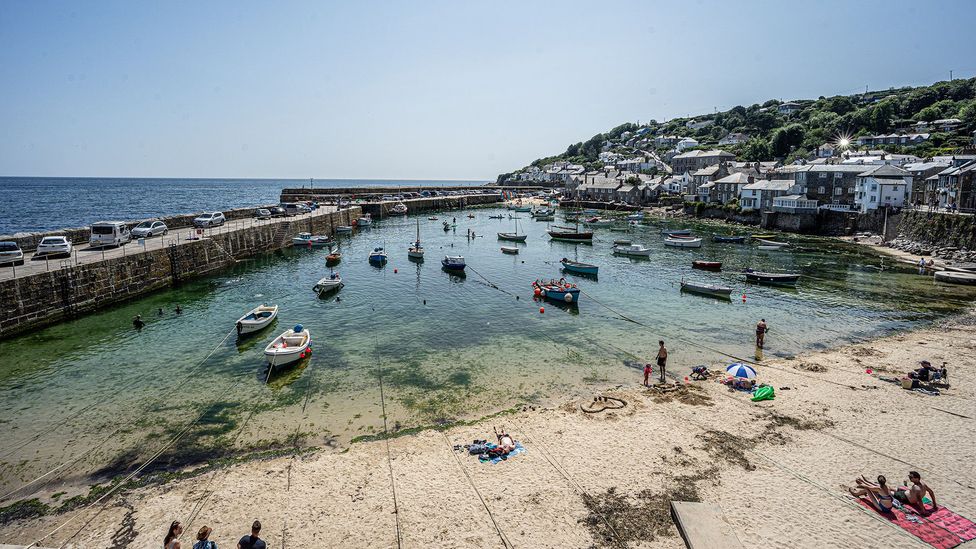
Properties in Mousehole are often empty outside of the summer tourist season (Credit: Richard Collett)
The revival of the language is part of a wider cultural rally that in recent years has seen Cornish-language films, the release of albums sung entirely in Cornish by the Welsh singer Gwenno, and the performance of the Ordinalia plays with speaking parts in Cornish that were banned by the English monarchy and branded as heretical in the 16th Century. Johns recently released a Cornish language cookery book, too.
But Cornish has many challenges to overcome, including a lack of qualified teachers and competing demands for funding in a region that's consistently ranked as one of the poorest in Northern Europe.
Mousehole, the traditional fishing village where my journey in search of the Cornish language began, is beset by a lack of affordable housing driven by overtourism and high levels of second-home ownership. In a part of the United Kingdom where more than 22,000 people are on a social and affordable housing register, properties in Mousehole are often empty outside of the summer tourist season.
Broadhurst told me that Camborne, where she lives, is home to the largest food bank in Cornwall, with up to 15,000 local families receiving emergency food parcels every month. Poverty is rife in Cornwall, a situation which has led to regular demands for devolution, or even outright independence in Cornwall, which in turn fuels a desire for a national language.
Broadhurst believes that Cornish can be an economic as well as a cultural asset. "We can develop jobs where learning Cornish is useful," she said. "I'd love it if every pub in Cornwall had a menu in English and Cornish, and the bar staff can ask people what they want to drink in Cornish, and people can reply: "Pinta Korev, mar pleg" [a pint of beer, please]. That would be great."
(Image credit: Stephen Worth/Alamy)
- Se connecter ou s'inscrire pour publier un commentaire
- 43 vues
Connexion utilisateur
Dans la même rubrique
Pâmela Carvalho
23/01/2026 - 10:47
Commentaires récents
"Cet élève c'est Satan !"
Piètres arguments ,comme toujours
yug
14/02/2026 - 14:15
Enième évocation systématique ,en guise d'arguments du "second degré" et "d'absence du sens de Lire la suite
"Cet élève c'est Satan !"
CON COMME UN BALAI
Albè
14/02/2026 - 11:20
Ce Yug n'a aucun sens du second degré ni de l'humour. Lire la suite
"Cet élève c'est Satan !"
Elève Vercingétorix ,levez-vous !
yug
13/02/2026 - 14:00
C'est quoi un " élève gaulois" ?? Lire la suite
Rôle des élus politiques et souveraineté Populaire
BIZARRE...
Albè
13/02/2026 - 07:36
Aucun Grand Commentateur de la rubrique "Commentaires" de ce site-web n'a vu dans cet article de Lire la suite
Un chanteur anti-Poutine pourrait-il faire un concert en plein moscou ?
Liberté de presse et.....donc ?
yug
12/02/2026 - 14:51
Liberté d'expression ,bien entendu ...les deux étant consubstantiellement liées ...
Lire la suite
Top 5 des articles
Aujourd'hui :
- Municipales du Carbet : les engagements de Louis Boutrin
- "Cet élève c'est Satan !"
- Une Martiniquaise, Paris-Plage et le Rocher du Diamant
- "Barbès Créole Blues" ou le roman de l'émigration antillaise en France
- « Manman, manman, manman ! » Répétition expressive et profondeur maternelle dans le créole
Depuis toujours :
- Tous les présidents et premiers ministres de la Caraïbe sont vaccinés
- L'intolérable appauvrissement intellectuel et culturel de la Guadeloupe et dans une moindre mesure de la Martinique !
- LETTRE OUVERTE AU 31ème PREFET FRANCAIS DE MARTINIQUE
- L'arrière-grand-père maternel de Joan Bardella était...algérien
- Les triplement vaccinés contre le covid ne bandent plus

